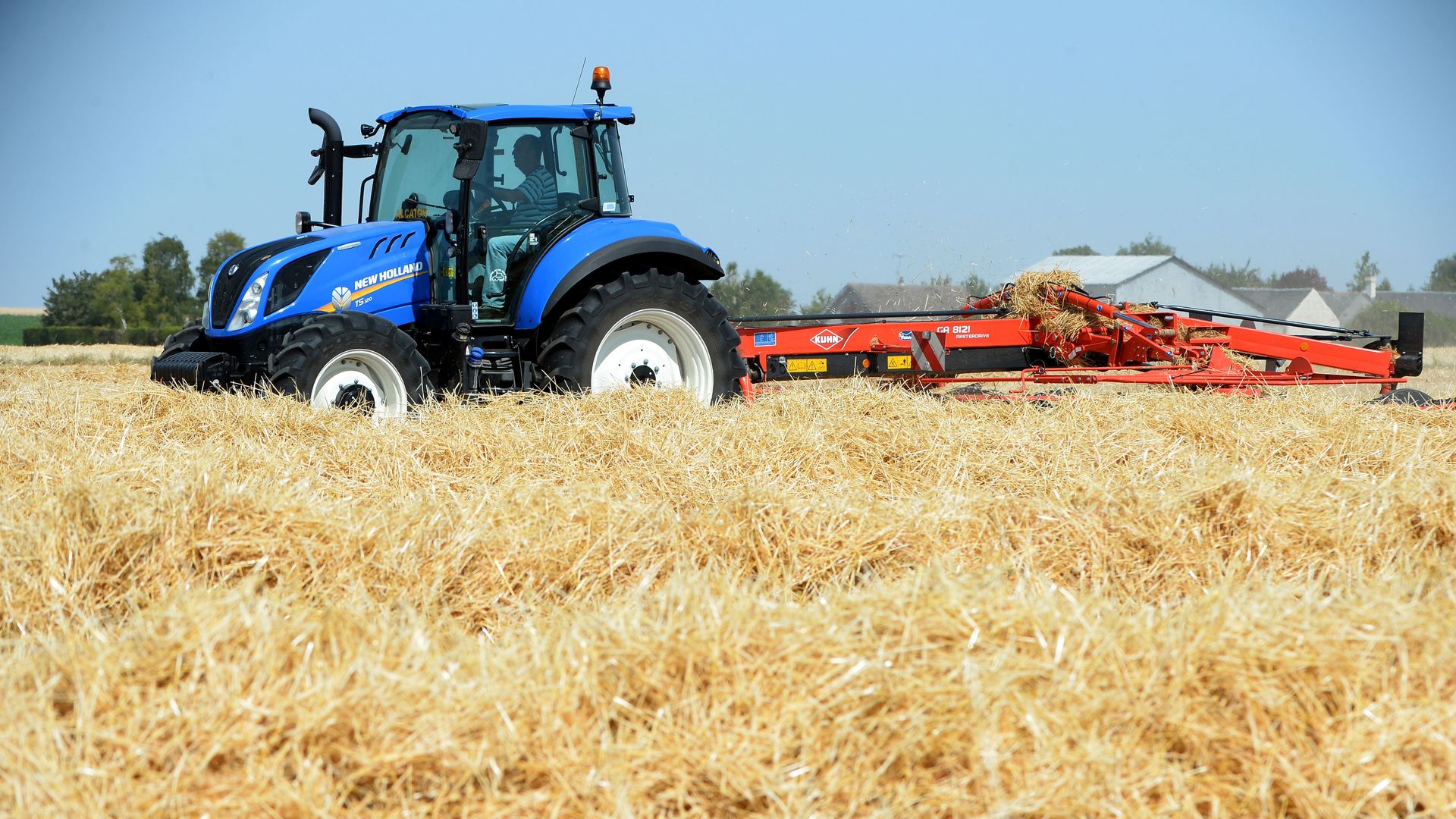USDA's silence on climate crisis makes little sense to farmers
Add Axios as your preferred source to
see more of our stories on Google.

Photo: Jean-Francois Monier/AFP/Getty Images
The Trump administration's resistance to addressing climate change is exacerbating the Department of Agriculture's mostly unsuccessful attempts to help farmers cope with extreme weather, Politico reports.
Why it matters: Farmers and ranchers are already reckoning with the impacts of climate change today in their businesses, making federal action (or inaction) on the issue especially relevant.
The state of play: USDA spends 0.3% of its $144 billion budget to help farmers respond to climate change, per Politico, describing the lack of effort as "a conspiracy of silence at lower levels of the department." Many officials fear they'll lose their jobs if they acknowledge climate change publicly.
- A collection of 10 Climate Hubs, designed during the Obama era to help farmers, ranchers and rural communities deal with climate-related vulnerabilities, has been operating under-the-radar, with few resources and little staffing "to avoid sparking the ire of top USDA officials or the White House," Politico writes.
- Farmers are still feeling the effects of the March "bomb cyclone," which brought blistering blizzard conditions to the Plains this year.
- Wet conditions this spring meant 20 million acres could not be used for planting, according to Politico.
- Weather-related events across the country "have converged to make the past year one of the worst for agriculture in decades," Politico writes.
- Politico reports that new tools designed to help farmers respond to global warming are not typically promoted, and are tricky to find on the department's resource pages.
- A recent Politico investigation found the department "routinely buries its own scientists’ findings about the potential dangers posed by a warming world."
Flashback: During President Obama's tenure, USDA changed what had been years of that agency deeming climate change "too politically toxic in the traditionally conservative agriculture sector," Politico writes. But now under the Trump administration, the issue has been largely repressed.
Between the lines: Earlier this year, Agriculture Secretary Sonny Perdue blamed climate change on weather patterns, a stance that has trickled down throughout the department.
- Rather than climate change, staff should hold "weather extremes" responsible for shifting patterns, Bianca Moebius-Clune, an official directing soil health at the Natural Resources Conservation Service wrote per emails obtained by The Guardian. "Instead of climate change adaptation, staff should consider using 'resilience to weather extremes/intense weather events: drought, heavy rain, spring ponding,'" Politico added.
The big picture: The National Climate Assessment, released by the Trump administration in late 2018, cites human-driven global warming for climate shifts, and it warns of catastrophic impacts.
Go deeper: Trump administration ignored internal report on climate change and migration
